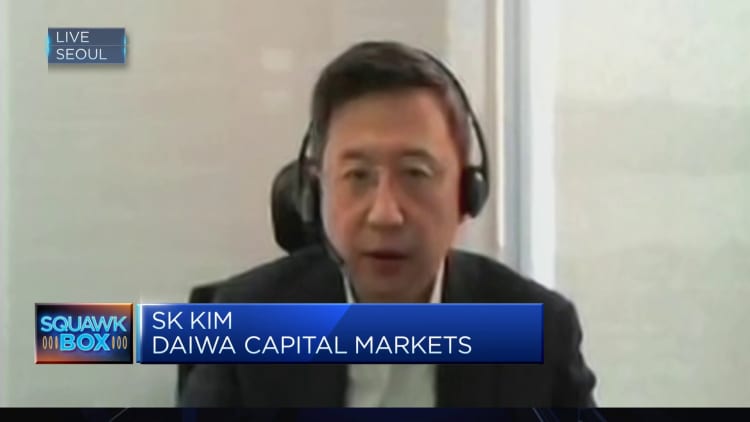People walk past an advertisement for Samsung Galaxy S23 phones at the company’s Seocho building in Seoul on April 7, 2023.
Jung Yeon-je | Afp | Getty Images
South Korean chip giant Samsung Electronics is expecting a 78% drop in operating profit in the quarter ended September, according to guidance released by the company.
The company expects revenue will come in at approximately 67 trillion South Korean won ($50.02 billion) for the third quarter, while operating profit will stand at about 2.4 trillion won.
This compares with the 76.78 trillion won recorded in sales and 10.85 trillion won in operating profit reported a year ago.
On a quarter on quarter basis, the third-quarter guidance reflects an 11.5% increase from the second-quarter revenue figure of 60.01 trillion won, and more than triple the 670 billion won in operating profit.
The operating profit guidance from Samsung was slightly higher than analyst expectations. Before the guidance was released, analysts polled by LSEG expected operating profit of 2.3 trillion won for the September quarter, a 78.7% year-on-year decline.
Revenue was expected to come in at 67.8 trillion won, a fall of 11.6%, according to forecasts from LSEG, formerly known as Refinitiv.
Samsung is the world’s largest maker of memory chips, used in products ranging from laptops to servers. It is also the world’s biggest smartphone player.
Shares of the chip giant surged 3.16% on Wednesday. The stock was the largest gainer on the South Korean Kospi and powering the index to to lead gains in Asia.
SK Kim, executive director of Daiwa Securities, told CNBC’s “Squawk Box Asia” that Samsung is expected to see a meaningful “price recovery” from the second quarter of 2024, explaining that the current demand environment is weak and that Samsung is using production cuts to “change the situation.”
On the geopolitical front, Kim believes that the recent announcement of Samsung (as well as counterpart SK Hynix) being allowed to ship U.S. semiconductor manufacturing equipment to their China factories indefinitely without separate U.S. approvals will be a positive for the company.
He acknowledges that there are still certain restrictions, but this will allow the company to upgrade their capacity in the medium term, perhaps until 2025, if need be.










